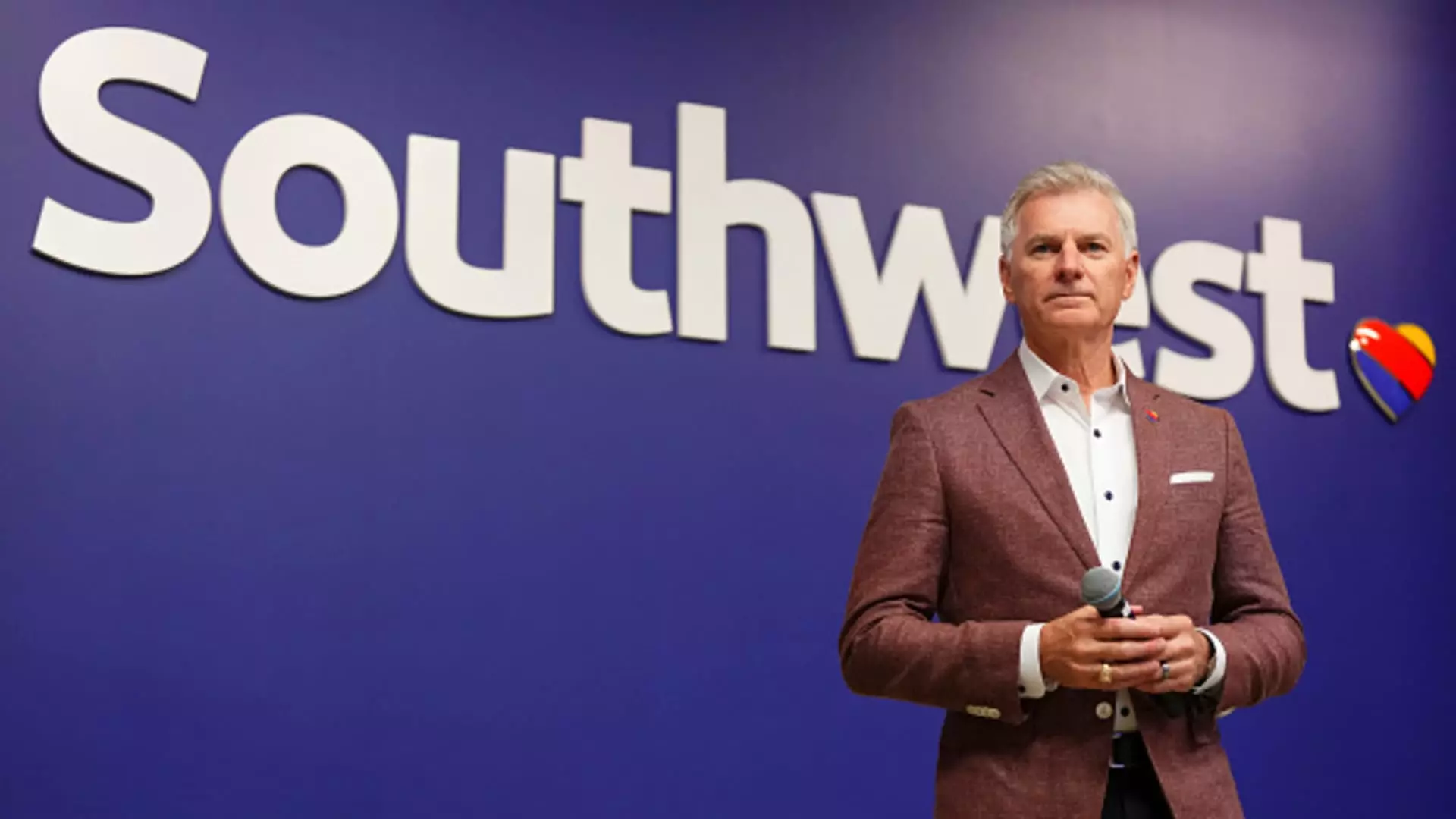In a move reflecting the dynamic intersection of corporate governance and investor activism, Southwest Airlines recently reached an agreement with Elliott Investment Management, a prominent activist hedge fund. This pivotal arrangement is designed to reshape the airline’s leadership structure by introducing new board members and facilitating an early transition for Executive Chairman Gary Kelly. While these changes signal a departure from traditional practices, they also highlight the challenges and opportunities faced by one of the nation’s largest carriers.
Elliott Investment Management, known for its assertive approach to enhancing shareholder value, initiated this campaign as a response to perceived deficiencies in Southwest’s strategic direction. The fund’s demands included a reconfiguration of the airline’s board and significant leadership changes, specifically targeting both Gary Kelly and CEO Bob Jordan. As those overseeing operations and strategy for over three decades, their longstanding presence raised questions about adaptability in a rapidly evolving industry. Instead of a contentious proxy fight, the agreement reached enables Southwest to fortify its board with six new members, foreshadowing a potential shift in the company’s operational ethos.
With the addition of five nominees from Elliott and former Chevron CFO Pierre Breber, the newly revitalized board now comprises thirteen members. This composition, while still short of complete control for Elliott, represents a substantial influence that may pivot the airline toward more aggressive growth strategies. The presence of individuals with diverse backgrounds and experiences could help navigate the complexities of the current aviation landscape, which has witnessed fierce competition and fluctuating market demands.
The decision to appoint a new chairman—who will succeed Kelly—marks a critical juncture for Southwest’s governance, hinting at a fresh vision for the airline. This strategic reshuffling reflects not only an adaptation to external pressures but also the need for a proactive stance in enhancing profitability and operational efficiency. The appointment of Elliott’s board members could herald the infusion of new perspectives as Southwest seeks to innovate its business model.
Underlining the urgency of these changes is Southwest’s stagnant share performance, which has increased by less than one percent against an S&P 500 rise of 21% in the same timeframe. This disparity has intensified scrutiny of existing leadership and operational practices. Critics have pointed out that Southwest’s reluctance to innovate and its adherence to outdated business practices may stifle growth and alienate a more diverse customer base seeking better service options.
To combat these challenges, Southwest is showing willingness to rethink its established policies, including the implementation of a more structured seating arrangement and consideration of tiered pricing models similar to competitors like Delta Air Lines. This shift away from its 50-year legacy may indicate a recognition of the necessity for transformation driven by market demands and customer expectations, crucial for sustaining long-term viability.
Additionally, in an encouraging development, the airline reported third-quarter profits, exceeding analysts’ expectations, falling around the backdrop of strategic route cutbacks aimed at cost reduction. The ambitious target of increasing earnings before interest and taxes by $4 billion by 2027 is a testament to Southwest’s commitment to financial rejuvenation. A newly authorized $2.5 billion share buyback program, intended to further enhance shareholder value, reflects a proactive approach to securing investor confidence.
However, despite these promising strategies and short-term gains, shares fell by approximately six percent in midday trading during the announcement—a clear indicator of market skepticism towards the sustainability of these initiatives. The path ahead involves a careful balancing act between investor satisfaction and maintaining robust operational standards.
While the settlement with Elliott Investment Management marks a new chapter for Southwest Airlines, its success will rely heavily on the effective integration of new board members and the execution of strategic initiatives. The potential for a more agile and innovative organizational structure could emerge, yet the path forward demands both a responsive leadership approach and a reinvigorated commitment to shareholder value. As Southwest navigates these transformative shifts while contending with historical legacies and market pressures, the horizon looks both promising and challenging for one of America’s key carriers.

